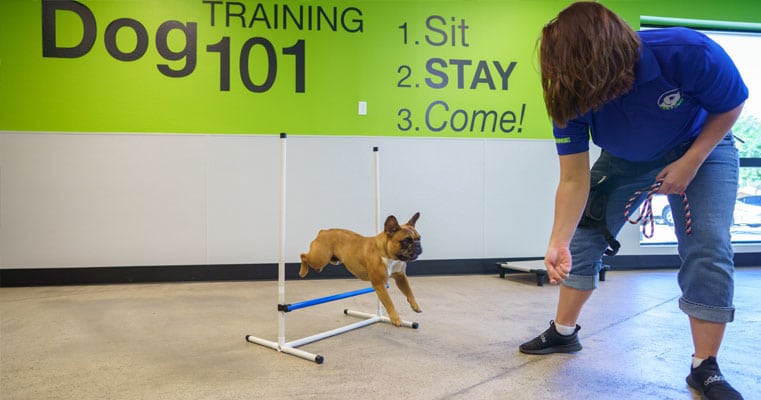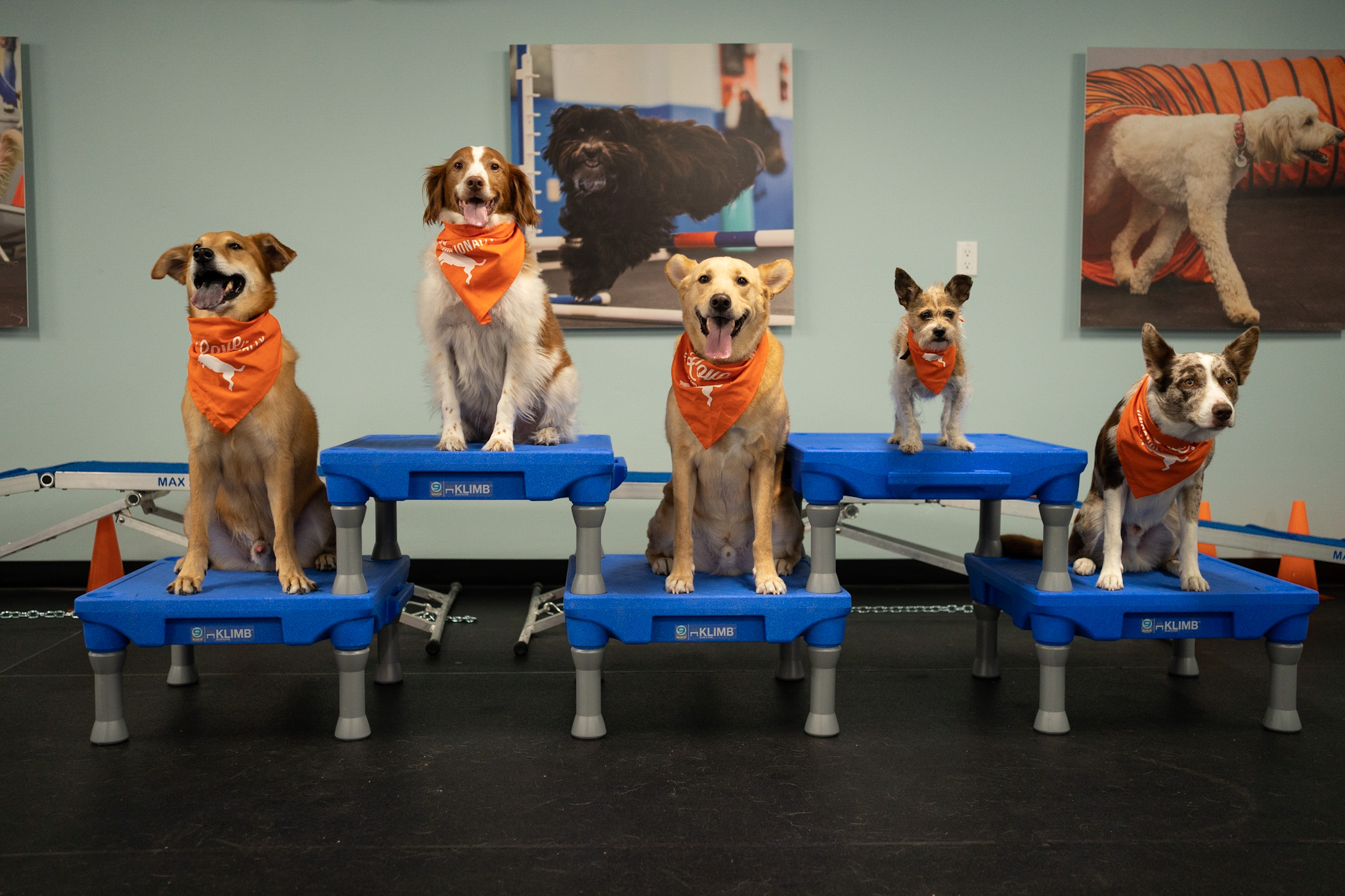Crucial Dog Educating Tips for a Positive and well-behaved Pet dog
Effective pet dog training is an essential facet of fostering a well-behaved and certain animal. Establishing a regular routine, using positive support techniques, and focusing on early socializing are essential components that contribute to a dog's overall habits and temperament.
Develop a Constant Routine
Establishing a regular routine is critical for efficient dog training. A well-structured routine offers pets with a sense of protection and predictability, which can dramatically improve their learning process. By establishing specific times for training sessions, feeding, walks, and play, you create a framework within which your pet can thrive.

In addition, a regular help in addressing behavioral issues. When a pet knows when and where to anticipate numerous activities, it decreases anxiousness and promotes a tranquil personality. Routine workout and psychological excitement must likewise be included in the routine, as they are vital for a canine's health.
Use Positive Support
Favorable reinforcement is a necessary element of effective pet training, promoting a solid bond in between the trainer and the canine while urging preferred habits. This training technique includes gratifying your pet dog with deals with, praise, or play quickly after they do a desired activity, such as coming or resting when called. The basic principle is that actions complied with by favorable results are most likely to be repeated.
To execute positive support successfully, timing is essential. Incentives need to be offered immediately to aid your pet make the link in between the behavior and the benefit. Consistency additionally plays a crucial duty; use the very same commands and benefits to enhance learning. If you award your pet dog for sitting, guarantee you make use of the same verbal cue each time.
Furthermore, differ the incentives to keep your dog involved. In some cases, a treat may be suitable, while various other times, verbal praise or a preferred plaything may be more efficient. This strategy not just boosts knowing yet also assists in developing self-confidence in your pet dog. Ultimately, positive reinforcement promotes a cheerful training experience, leading to a well-behaved canine and a more powerful partnership between the family pet and owner. dog training near me.

Mingle Your Pet Early
A pet dog's capacity to adapt to numerous settings and scenarios typically hinges on very early socializing. This critical developmental phase normally occurs between three and fourteen weeks of age, throughout which puppies are particularly receptive to brand-new experiences. By exposing your dog to diverse individuals, family pets, sounds, and settings Homepage throughout this time around, you can aid promote a confident and well-adjusted adult.
Socializing helps avoid behavior issues such as fear, aggression, and too much barking. When a pet is accustomed to various stimuli, it is less likely to react adversely out of fear or unpredictability. Engaging with various other pets in controlled setups, such as young puppy courses or playdates, can also instruct essential interaction skills and proper play habits.
Moreover, introducing your pet dog to numerous atmospheres-- like parks, hectic roads, and pet-friendly shops-- can boost its convenience and versatility in new situations. Always make sure that these encounters are delightful and secure, and monitor your canine's reactions to lead further interactions.
Educate Standard Commands
Structure on the structure of very early socializing, train dog not to bark at noises mentor fundamental commands is a vital aspect of pet dog training that improves communication in between you and your family pet. Fundamental commands such as "rest," "stay," "come," and "down" not just promote good actions but additionally guarantee your dog's safety in different situations.
To efficiently show these commands, begin in a peaceful atmosphere without disturbances. Usage positive reinforcement techniques, such as treats or appreciation, to award your pet instantly after they perform the preferred behavior. Consistency is crucial; repeat regulates in a clear, firm voice and practice consistently to strengthen discovering.
Start with simple commands, gradually enhancing complexity as your pet comes to be a lot more skillful. As soon as your dog dependably sits, you can present the "keep" command.
Address Behavioral Issues Immediately
Addressing behavior concerns promptly is vital for keeping a harmonious relationship with your pet. Postponing treatment can bring about the support of unwanted habits, making them extra challenging to correct in time. Whether your dog exhibits hostility, too much barking, or splitting up anxiousness, it is crucial to identify the origin of these habits and address them their website quickly.
First, observe the context in which the actions happens. Understanding triggers will certainly allow you to create a reliable training plan. Consistency is vital; make sure that all family members react to the habits consistently to stay clear of puzzling your pet. Utilize positive support techniques, awarding your pet for preferred actions while redirecting undesirable ones.
Sometimes, expert aid may be essential. A certified canine instructor or behaviorist can offer customized strategies to resolve certain concerns. Bear in mind that patience and perseverance are vital, as therapy typically calls for time.
Ultimately, by addressing behavioral problems without delay, you foster a positive setting that urges your dog to flourish. This positive strategy not only enhances your pet dog's actions yet also enhances the bond in between you and your pet dog.
Conclusion
In conclusion, carrying out a regular regimen, utilizing positive reinforcement, and focusing on early socialization are fundamental in developing a well-behaved and positive pet (dog training near me). Teaching fundamental commands with concentrated sessions promotes efficient communication in between proprietor and pet dog, while promptly addressing behavioral problems stops the acceleration of issues. With each other, these approaches develop an unified atmosphere that improves the bond between pet dogs and their owners, inevitably resulting in a happier, much healthier canine friend
Establishing a constant routine, employing positive support methods, and prioritizing early socializing are key components that add to a canine's overall actions and personality.Positive reinforcement is a vital component of reliable pet dog training, fostering a strong bond between the instructor and the pet dog while encouraging wanted habits. Benefits ought to be offered immediately to help your pet make the link between the incentive and the habits. Use favorable reinforcement strategies, such as treats or appreciation, to award your dog promptly after they carry out the wanted actions. Make use of positive support techniques, awarding your canine for wanted behaviors while rerouting unwanted ones.